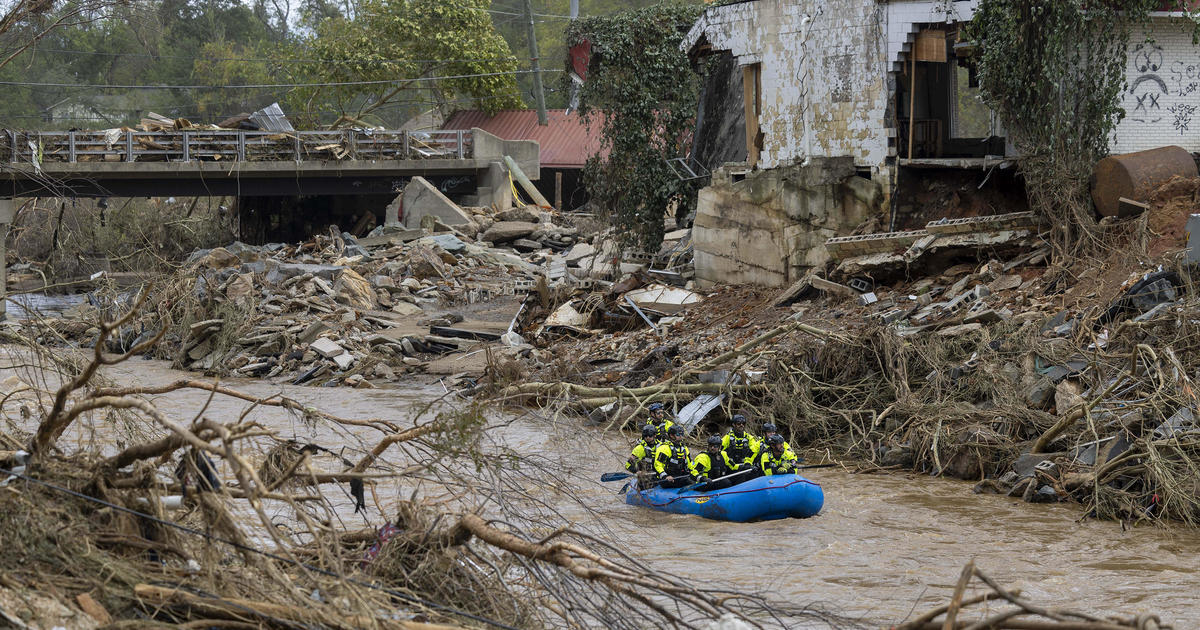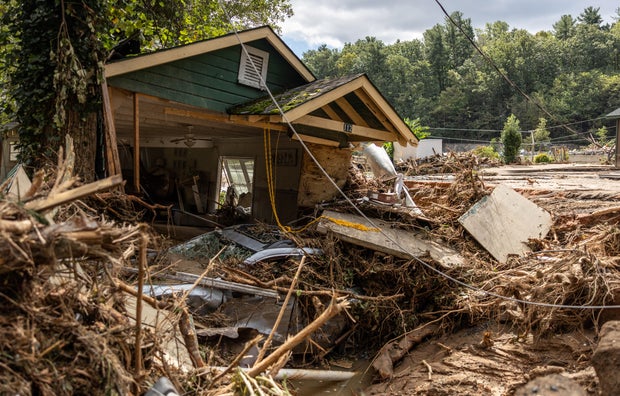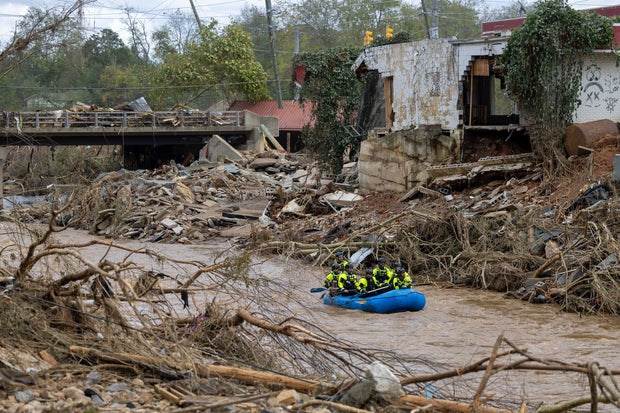The search for survivors continued Tuesday amid the devastation from Hurricane Helene, which has killed at least 135 people and destroyed homes across the Southeast.
Many people also remain unaccounted for, especially in North Carolina, where hundreds of roads remain inaccessible and communications have been knocked out. At the White House on Monday evening, President Joe Biden told reporters there were reports that 600 people were unaccounted for.
“God willing they’re alive, but there’s no way to contact them,” Mr. Biden said.
FEMA Administrator Deanne Criswell said that search and rescue personnel have been deployed to affected area, and efforts are underway to bring in satellite communications. CBS News previously reported that more than 3,300 personnel from across the federal government have been deployed to support response efforts in the states Helene bore through. The storm is expected to be one of the costliest in U.S. history.
Khadejeh Nikouyeh/The Charlotte Observer/Handout via Reuters
Hurricane Helene’s impact
Hurricane Helene made landfall in Florida’s Big Bend region on Thursday, with 140 mile per hour winds and 15-foot storm surge in some areas. Parts of the Gulf Coast have been decimated. Officials estimate that 90% of the homes in Keaton Beach, Florida are simply gone, after massive storm surge and strong winds impacted the coastal area.
“It’s total devastation, and very heartbreaking, because we were a family,” said Becky Jarvis, whose husband built their home there 40 years ago. Now, it’s in pieces. “It’s very sad.”
After the storm hit Florida, it blew north through Georgia. Gov. Brian Kemp said Saturday that it “looks like a bomb went off,” with splintered homes and debris-covered highways visible from the air.
The storm then brought torrential rain to the Carolinas and Tennessee, straining dams and overflowing waterways. In rural North Carolina, the area of Busick was recorded as receiving over 31 inches of rain in just two days.
“This is an unprecedented tragedy that requires an unprecedented response,” North Carolina Gov. Roy Cooper said at a news conference Sunday.
Cooper added that more deaths were expected as rescuers reach isolated areas.
Search and rescue operations ongoing amid devastation
Criswell said that it remains “very much an active search and rescue mission” in Western North Carolina.
“We know that there’s many communities that are cut off just because of the geography” of the mountains in the region, she said Sunday.
Emergency Services Assistant Director Ryan Cole said the flooding in Buncombe County, which contains the city of Asheville, was “biblical.”
“We’ve had biblical flooding here and it has been extremely significant,” Cole told the Citizen-Times.
County manager Avril Pinder told the local publication that the storm “is looking to be Buncombe County’s own Hurricane Katrina.”
The News & Observer/Tribune News Service via Getty Images
In Swannanoa, North Carolina, more than 380,000 people are without power and the lack of cell phone service in the area has left many cut off from the outside world. During the peak of flooding, waters reached as high as the rooftops of many homes.
“This is devastation, devastation, the worst I’ve ever seen, and I’m 80 years old,” Pat Harris, who has lived in the small town for over six decades, told “CBS Mornings” on Tuesday.
Food, water and other essential supplies have been delivered to the community by air, since highways and streets are impassable. North Carolina’s Department of Transportation said all roads in the western part of the state should be considered closed to non-emergency travel.


